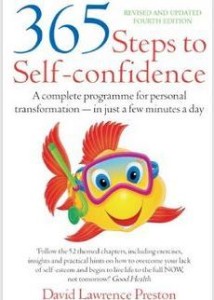Although the relationship you have with yourself is the most important, you also have to deal with the demands others place on you.
We are put under tremendous pressure in society to conform to attitudes and behaviour patterns which are not necessarily of our choosing, especially children. They assess their self-worth mainly by how others respond to them.
Some adults are very demanding and/or controlling. They judge their sons and daughters by some imaginary ideal that is not realistic, or (sometimes loudly and continually) compare them to other children. The result is children who feel defective and unloved, and who believes they are rejected by those they need and respect the most.
Self-esteem
You can easily determine a person’s level of self-esteem by the way they relate to others. People with low self-esteem often:-
- Crave recognition and approval from others
- Compare themselves unfavourably with others
- Are daunted by others’ success
- Are unable to speak up for themselves
- Apologise a lot
- Are easily upset by criticism
- Are always criticising or blaming others
- Have a boastful, rude or bullying nature as a defence
- Gossip
- Are excessively over-generous
- Are unable to accept a compliment
- Have a tendency to seek out others who have low self-esteem
Conditions of Worth
The criteria used by one person to gauge the ‘acceptability’ of another are called ‘Conditions of Worth’. The main ones are:
- Physical appearance
- Intelligence
- Mode of speech
- Performance
- Money and possessions
When you were young, you were probably very concerned about what people thought of you. Children, of course, can be especially cruel. Have you ever heard schoolchildren mercilessly teasing a classmate who is overweight, has red hair or wears glasses? Or whose parents can’t afford the ‘right’ brand of clothing and footwear? How do you think the ‘victims’ feel? What does it do to their self-esteem?
Be your own person
No matter what has happened to you in the past, you can take responsibility for your thoughts and actions and evaluate yourself by your own criteria. Remember, you can’t change or control other people, but you can take charge of yourself. As Mahatma Gandhi said, ‘No-one can take away our self-esteem unless we give it to them.’
Naturally we all prefer to be liked and respected, but if we allow this to rule our lives, we’re giving away our personal power. Of course, there is nothing wrong enjoying a compliment, but it becomes a serious problem if our need for approval governs all our actions. What counts is self-approval – the conviction that we are valuable come what may.
Comparisons
Start by shunning comparisons. Avoid comparing yourself with others. You’ll always find people who are better than you at some things, and people who are worse. That’s the way it is.
The uncomfortable fact is that people treat you exactly the way you teach them to. You get back what you give out, so if you want to be treated differently, learn to give out different messages.
From now on, instead of pandering to others, give most value to what you think of yourself.
©David Lawrence Preston, 1.8.2016
Follow me on Facebook and Twitter @David_L_Preston
How to Books, 2010


Leave a Reply